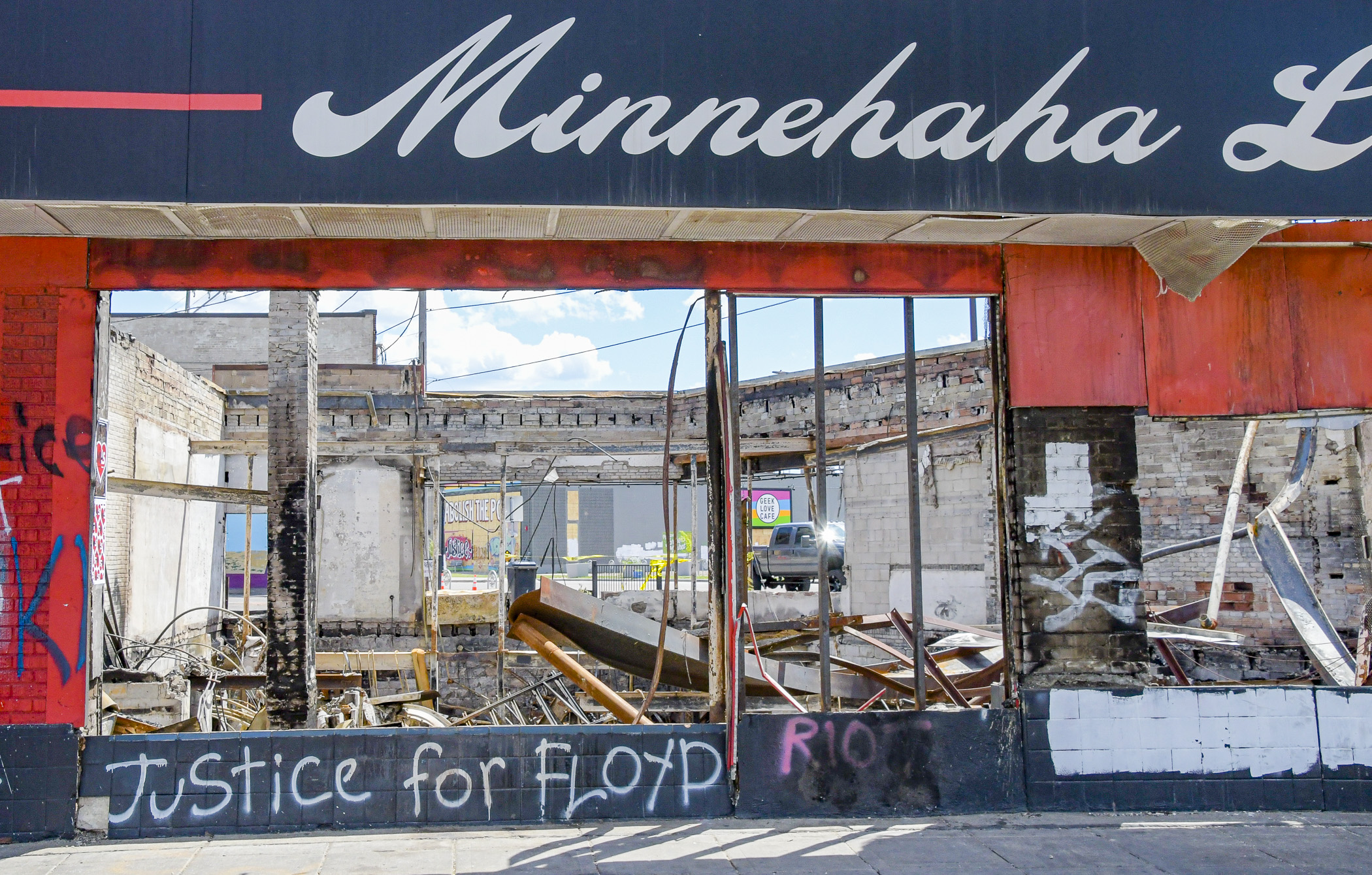No state disaster funds for civil unrest damages under plan heard in House committee

When Minnesota cities are damaged by floods or other natural disasters, they can apply for state aid to help repair the damages, and if approved, the money comes from a contingency account set up for just such events.
But if the damages result from civil unrest, as happened in Minneapolis and St. Paul last year, can the account be tapped?
Current state law says it can, according the state’s top emergency manager, but that could change. HF444 would amend the law to specifically exclude “a catastrophe caused by civil unrest” from receiving contingency relief funds.
Sponsored by Rep. Gene Pelowski, Jr. (DFL-Winona), the bill was discussed Wednesday by the House Industrial Education and Economic Development Finance and Policy Committee, but no action was taken. The companion, SF7, sponsored by Sen. Julie Rosen (R-Vernon Center), awaits action on the Senate Floor.
Although Pelowski sponsors the bill, he does not support it.
His aim is to separate the civil unrest issue from another bill he sponsors, HF38, to add $30 million to the “woefully inadequate” disaster assistance account that has a $4 million balance.
The discussion on HF38 became very political at the committee’s Jan. 27 hearing when lawmakers debated whether disaster assistance money should be used to rebuild properties damaged during the civil unrest in Minneapolis last year.
Rep. Rod Hamilton (R-Mountain Lake) and Rep. John Burkel (R-Badger) said the intent of legislators voting to create the disaster fund in 2014 was it should only be used for natural disasters.
If a disaster is big enough, regardless of cause, Hamilton said, that’s an appropriate reason for the Legislature to debate whether to spend any relief money, even if it means calling a special session to do so.
Joe Kelly, state director of Homeland Security and Emergency Management, said the $12 million Gov. Tim Walz used last year from the fund to pay for some of the civil unrest damages was permitted under the current statute that he said covers disasters “regardless of cause, any fire, flood, or explosion.”
Money from the account was used only to pay for public cleanup operations and public infrastructure damaged or destroyed by fires in Minneapolis and Hennepin County.
A bill opponent, Kelly noted an especially troublesome provision to exclude “civil unrest” from the definition of permissible relief fund allocations since Jan. 1, 2020.
“That would not only change the rules of the game, so to speak, but also change the rules after the fact and undo a gubernatorial decision,” he said.
Rep. Heather Edelson (DFL-Edina) and Rep. Cedrick Frazier (DFL-New Hope) both say the retroactive provision is an attempt to specifically punish Minneapolis residents for events they had no control over.
Edelson said disaster relief has been, and will be, needed throughout the state, and it would set a bad precedent to start making value judgments about which communities are worthy of relief.
Noting the League of Minnesota Cities is against the bill, Edelson said lawmakers should listen to the unified voice of the 835 member cities in that organization.
In written testimony, Anne Finn, the league’s assistant intergovernmental relations director, said, “Municipalities and other governmental units are at risk of experiencing disastrous events affecting their communities beyond natural disasters, whether from civil disturbances, industrial catastrophes, or other disastrous events. … While some limited State resources may be available, cities do not have the resources to respond to such disasters.”
More on the contingency fund
The 2014 law establishing the disaster assistance account appropriated $3 million. The contingency account has been funded each biennium since, with amounts ranging from $5.4 million to $20 million. In 2019, it was replenished with $10 million.
[MORE: Read about the contingency fund in Session Daily]
The account was created to provide immediate disaster response funding without further legislative action. Prior to its creation, the Legislature would need to convene every time a disaster was declared, often in a special session, to appropriate money toward response efforts.
“Minnesota is fortunate to have an effective and intertwined system of federal and state disaster assistance to help these local jurisdictions in their response and recovery to disaster,” said Eric Waage, director of Hennepin County Emergency Management.
In his January budget proposal, Walz recommends a $15 million transfer from the General Fund to the contingency account for anticipated disaster assistance needs for the remainder of the current biennium that ends June 30, 2021, and $25 million for the 2022-23 biennium.
Governors have declared 52 disasters since 2014 and the fund has paid out $104 million in that time. Since then, the Legislature has replenished the account with $108 million.
Related Articles
Search Session Daily
Advanced Search OptionsPriority Dailies
Speaker Emerita Melissa Hortman, husband killed in attack
By HPIS Staff House Speaker Emerita Melissa Hortman (DFL-Brooklyn Park) and her husband, Mark, were fatally shot in their home early Saturday morning.
Gov. Tim Walz announced the news dur...
House Speaker Emerita Melissa Hortman (DFL-Brooklyn Park) and her husband, Mark, were fatally shot in their home early Saturday morning.
Gov. Tim Walz announced the news dur...
Lawmakers deliver budget bills to governor's desk in one-day special session
By Mike Cook About that talk of needing all 21 hours left in a legislative day to complete a special session?
House members were more than up to the challenge Monday. Beginning at 10 a.m...
About that talk of needing all 21 hours left in a legislative day to complete a special session?
House members were more than up to the challenge Monday. Beginning at 10 a.m...